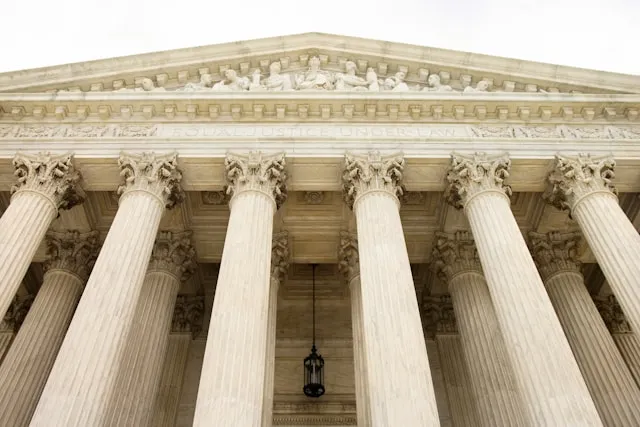Court allows parents to opt their children out of school lessons involving LGBTQ+ themes


The Supreme Court on Friday ruled that a group of Maryland parents have a right to opt their elementary-school-aged children out of instruction that includes LGBTQ+ themes. By a vote of 6-3, the justices agreed with the parents – who are Muslim, Catholic, and Ukrainian Orthodox – that the Montgomery County school board’s refusal to provide them with that option violates their constitutional right to freely exercise their religion.
Writing for the majority, Justice Samuel Alito acknowledged that “courts are not school boards or legislatures, and are ill-equipped to determine the ‘necessity’ of discrete aspects of a State’s program of compulsory education.” But he emphasized that “what the parents seek here is not the right to micromanage the public school curriculum, but rather to have their children opt out of a particular educational requirement that burdens their well-established right ‘to direct ‘the religious upbringing’ of their children’” under the free exercise clause of the First Amendment.
Justice Sonia Sotomayor dissented, in an opinion joined by Justices Elena Kagan and Ketanji Brown Jackson. Sotomayor warned that Friday’s decision “threatens the very essence of a public education” because it “strikes at the core premise of public schools: that children may come together to learn not the teachings of a particular faith, but a range of concepts and views that reflect our entire society.”
The case comes to the court from Montgomery County, in the Washington, D.C., suburbs. With nearly 160,000 students enrolled during the 2024-25 school year, it is one of the nation’s largest school systems, and it’s in one of the most religiously diverse counties in the United States.
The dispute stems from the county school board’s 2022 approval of books featuring LGBTQ+ characters for use in its language-arts curriculum. One book, Uncle Bobby’s Wedding, tells the story of a little girl’s reaction to her uncle’s same-sex wedding; another book, Pride Puppy, describes a puppy that becomes lost during a Pride parade.
The county initially allowed parents to excuse their children from instruction using the LGBTQ-themed storybooks. When the county removed that option in 2023, several parents went to federal court. They contended that the school board’s refusal to let them excuse their children from such instruction violated their First Amendment rights in two ways: It robbed them of their ability to instruct their children on issues of gender and sexuality according to their faiths and burdened their right to control how and when their children are exposed to these issues.
The lower courts rejected the parents’ request for a temporary order that would require the school board, while the litigation continued, to notify the parents when the storybooks would be used and allow them to excuse their children from instruction. The U.S. Court of Appeals for the 4th Circuit ruled that on the “threadbare” facts before it, the parents had not shown that exposing the children to the storybooks compelled the parents to violate their religion.
On Friday the Supreme Court reversed. In a 41-page opinion that was accompanied by color reproductions of pages from the storybooks, Alito explained that the school board’s use of the storybooks—along with “its decision to withhold notice to parents and to forbid opt outs—substantially interferes with the religious development of their children and imposes the kind of burden on religious exercise that” the Supreme Court found unacceptable more than 50 years ago, in a decision, Wisconsin v. Yoder, that ruled for Amish parents challenging a Wisconsin law that required children to attend school until the age of 16.
The school board, Alito wrote, “requires teachers to instruct young children using storybooks that explicitly contradict their parents’ religious views, and it encourages the teachers to correct the children and accuse them of being ‘hurtful’ when they express a degree of religious confusion.”
When a policy imposes a burden like this, Alito continued, it is subject to the most stringent form of review, known as strict scrutiny, which asks whether the policy “advances ‘interests of the highest order’ and is narrowly tailored to achieve those interests.”
Although the board may generally have a compelling interest, as it argues, in maintaining a safe and non-disruptive learning environment, Alito acknowledged, the board’s argument is weakened by the opt-outs that it allows in other scenarios – for example, from sex education. “This robust ‘system of exceptions’” also “undermines the Board’s contention that the provision of opt outs to religious parents would be infeasible or unworkable,” Alito wrote.
Alito indicated that going forward and until the litigation in this case is finally resolved, “the Board should be ordered to notify” the parents “whenever one of the books in question or any other similar book is to be used in any way and to allow them to have their children excused from that instruction.”
Justice Clarence Thomas filed a concurring opinion in which he outlined “additional reasons why the Board’s policy cannot survive constitutional scrutiny.” First, he contended, the board’s efforts to promote equity and inclusion and reduce disruption in the classroom are not the kind of very important interests “sufficient to justify the policy’s interference with parents’ First Amendment rights.” To the contrary, he suggested, the inclusion of the storybooks and the “exclusion of traditional religious views … constitute an impermissible attempt to ‘standardize’ the views of students.”
Second, Thomas continued, the board’s contention that it wants to avoid disruption in the classroom by barring the opt-outs is simply “a product of its own design” insofar as the board has tried to include the storybooks as part of its everyday curriculum, rather than using them as part of separate and discrete units. “If the Court were to accept the Board’s argument,” Thomas wrote, “we would effectively give schools a playbook for evading the First Amendment.”
Posted in Merits Cases
Cases: Mahmoud v. Taylor